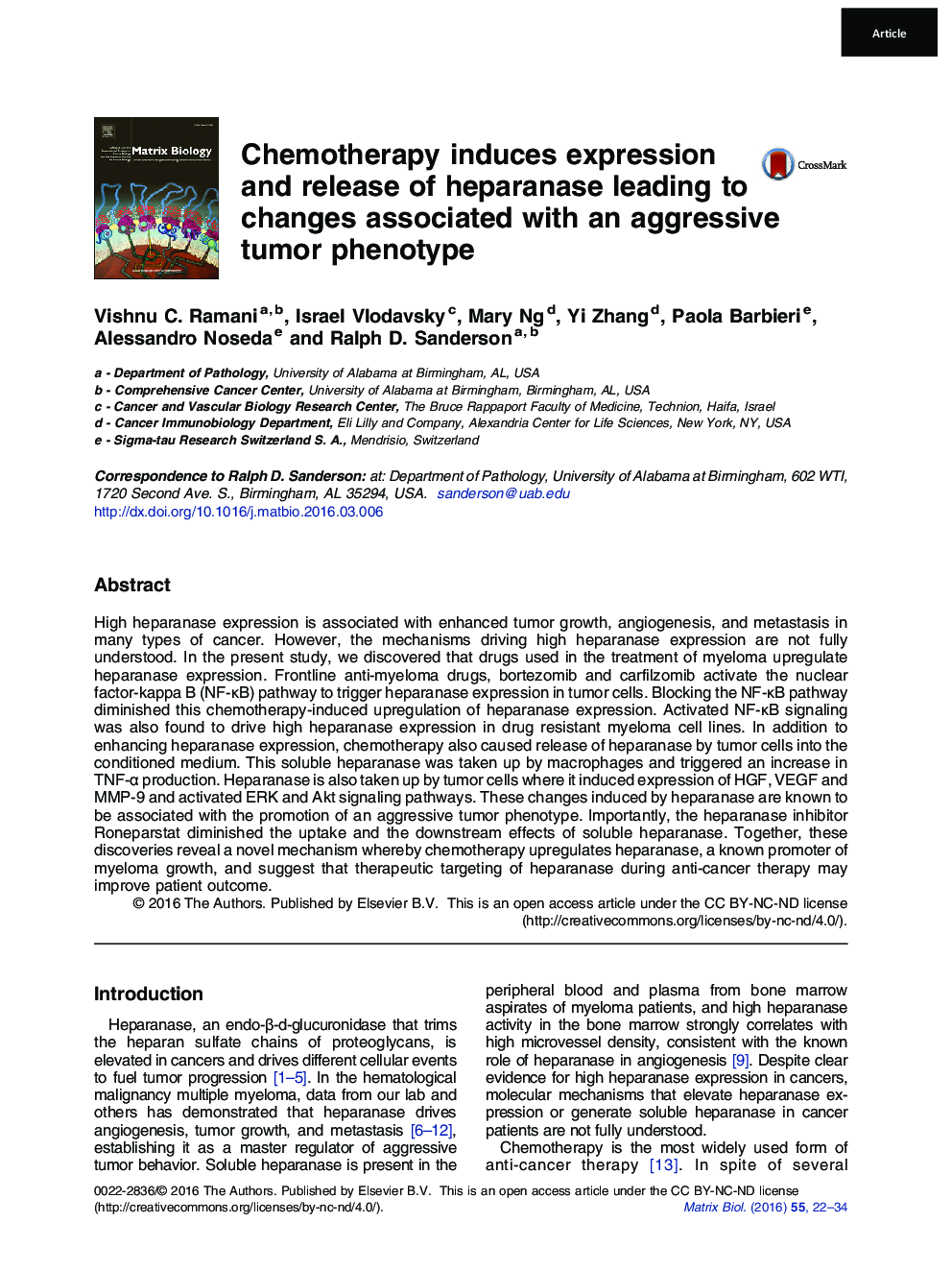| کد مقاله | کد نشریه | سال انتشار | مقاله انگلیسی | نسخه تمام متن |
|---|---|---|---|---|
| 5528584 | 1548005 | 2016 | 13 صفحه PDF | دانلود رایگان |
- Anti-myeloma drugs, bortezomib and carfilzomib elevate heparanase expression in an NF-κB dependent manner.
- Upon treatment with chemotherapy, myeloma cells release soluble heparanase (sHPSE) into the microenvironment.
- sHPSE activates pro-tumorigenic gene expression and signaling pathways in stromal and tumor cells.
- Targeting heparanase alongside chemotherapy may improve the outcome of anti-cancer therapy and patient outcome.
High heparanase expression is associated with enhanced tumor growth, angiogenesis, and metastasis in many types of cancer. However, the mechanisms driving high heparanase expression are not fully understood. In the present study, we discovered that drugs used in the treatment of myeloma upregulate heparanase expression. Frontline anti-myeloma drugs, bortezomib and carfilzomib activate the nuclear factor-kappa B (NF-κB) pathway to trigger heparanase expression in tumor cells. Blocking the NF-κB pathway diminished this chemotherapy-induced upregulation of heparanase expression. Activated NF-κB signaling was also found to drive high heparanase expression in drug resistant myeloma cell lines. In addition to enhancing heparanase expression, chemotherapy also caused release of heparanase by tumor cells into the conditioned medium. This soluble heparanase was taken up by macrophages and triggered an increase in TNF-α production. Heparanase is also taken up by tumor cells where it induced expression of HGF, VEGF and MMP-9 and activated ERK and Akt signaling pathways. These changes induced by heparanase are known to be associated with the promotion of an aggressive tumor phenotype. Importantly, the heparanase inhibitor Roneparstat diminished the uptake and the downstream effects of soluble heparanase. Together, these discoveries reveal a novel mechanism whereby chemotherapy upregulates heparanase, a known promoter of myeloma growth, and suggest that therapeutic targeting of heparanase during anti-cancer therapy may improve patient outcome.
Journal: Matrix Biology - Volume 55, September 2016, Pages 22-34
